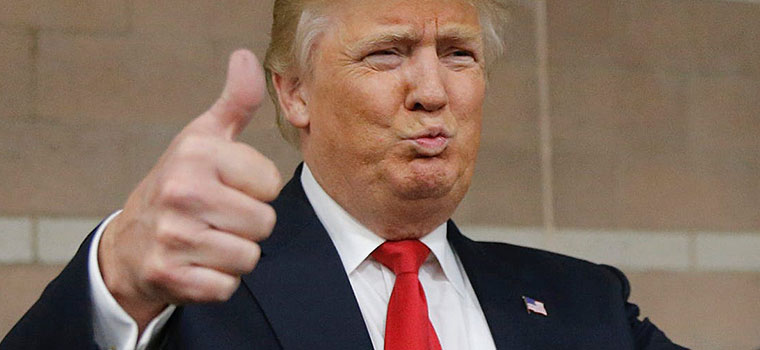
When I try to imagine where America is going, what sort of social, economic and political system will dominate its future, I find myself thinking about feudalism, the system of hierarchy that dominated Europe until the 14th century. If Donald Trump’s presidency represents anything, and he’s so all-over-the-place nuts he’s hard to pigeonhole, it’s the feudal sovereign, the king to whom the entire society had to pledge loyalty. It’s this feature – absolute loyalty – that distorts the current workings of Trump’s government and has spread among his followers to the point of obsession.
Feudalism, for those of you who need a refresher, was the system that dominated Europe before the rise of city states. Feudal sovereigns (kings and queens) topped a social pyramid with peasants at the bottom and various classes in between, such as lords, knights, squires and vassals. After a public declaration of fealty to the sovereign, he bestowed upon individual class members particular rights and obligations – to land, peasants, food, and protection – but absolute loyalty to the king applied to everyone. It was against this feudal backdrop that the Magna Carta, granting rights to certain nobles – no matter who was king in England – was adopted, now considered the beginning of liberal democracy.
The development of a fetus progresses visibly through earlier phases of evolution; we’re all taught that “ontogeny recapitulates phylogeny” in high school biology. Similarly, although democracy has evolved considerably since the Magna Carta, it still displays and contains many of its evolutionary stages. America is theoretically classless – “all men are created equal” – but in actuality is heavily class-based. Born poor in America – our version of peasantry – generally means remaining poor, and those born into wealth generally maintain that advantage.
Businesses and corporations are thoroughly feudal in their organizational structure, the least democratic institutions in America. It’s no coincidence that Donald Trump emerged within the absolute authority of his family’s business and has sought to impose his vision of feudal loyalty on all that surround him; he comes by it naturally.
The entire edifice of Corporate America, and its shadows in “plantation system” slavery of the Southern states prior to the Civil War, is feudal. To be a CEO of a major corporation is tantamount to being a feudal king, an absolute ruler with absolute power over employees, who as “wage slaves” are told what to do, where to do it and when. This feudalism accounts for much of the anti-government attitudes displayed by the business world as well as its objections to unionization. Government is a threat to corporate feudal autonomy and unions are a form of peasant revolt that risk allowing democratic forms to impinge upon feudal authority.
When I witness the sort of emotional attachment the British have to monarchy, I see more than just sentimental attachment. The urge to model society on a patriarchal model of the family is powerful. It’s no coincidence that so many plays by Shakespeare feature regicide, feudal kings misusing power then killed by sons or noblemen. Written at the dawn of the modern age, Shakespeare understood the social evolution taking place, and violent potential of it.
In it’s own way, the Trump saga is thoroughly Shakespearean: the bad seed of royalty rising to lead his kingdom to ruin and division, and now determined to lay waste to all those disloyal to him, all 76-million of us.